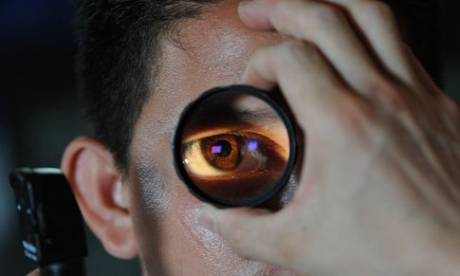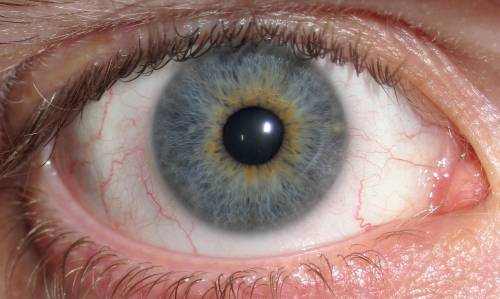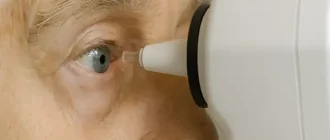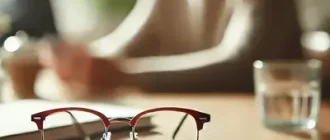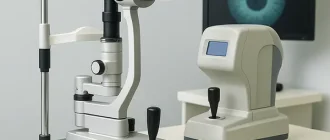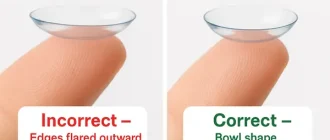Getting punched in the eye is one of those unfortunate occurrences that many people never expect, but the truth is, it happens far more often than you might think. Whether it’s due to an accidental slip during a sports game, an altercation, or simply being in the wrong place at the wrong time, understanding the consequences of a punch to the eye can be crucial for anyone. Let’s explore the different potential injuries, their symptoms, and why immediate medical attention is often essential.
The Anatomy of an Eye Injury
The human eye is a complex and delicate organ surrounded by various supportive structures, including the orbital bones, the muscles responsible for movement, and sensitive nerves. When a fist makes contact with the eye, it’s not just the eyeball at risk—injuries can impact everything from the muscles to the bones and the optic nerve. Below, we’ll explore the most common types of injuries resulting from a blow to the eye.
| Type of Injury | Symptoms | Severity |
|---|---|---|
| Black Eye (Ecchymosis) | Swelling, bruising, pain | Usually mild, resolves in 1-2 weeks |
| Corneal Abrasion | Redness, tearing, blurry vision | Moderate, often heals in 3-5 days |
| Orbital Fracture | Swelling, double vision, restricted eye movement | Severe, may require surgery |
| Hyphema | Blood in the front of the eye, light sensitivity | Serious, needs prompt treatment |
| Retinal Detachment | Sudden vision loss, floaters, flashes | Very severe, requires emergency surgery |
Common Consequences and Their Real-World Impact
1. Black Eye (Periorbital Hematoma)
One of the most visible consequences of getting punched in the eye is a black eye, medically known as a periorbital hematoma. The bruising occurs when small blood vessels burst, causing discoloration around the eye. Statistically, over 60% of minor facial trauma cases in emergency rooms are black eyes, according to the American Association of Ophthalmology.
While a black eye might seem superficial, it can sometimes indicate deeper issues, especially if accompanied by symptoms like dizziness or vision changes. Dr. Alan White, a facial trauma specialist, states, “Many people dismiss a black eye as a cosmetic issue, but in rare cases, it can signal a fracture or bleeding within the orbit, which could threaten vision.”
2. Corneal Abrasion: The Scratch You Don’t Want
A corneal abrasion is a scratch on the surface of the eye and is often incredibly painful. This can happen due to direct contact with the knuckles or secondary injuries such as debris being pushed into the eye. Corneal abrasions are notorious for causing intense discomfort. According to 2022 research in the Journal of Ophthalmic Studies, 40% of patients with corneal abrasions reported significant discomfort lasting over 48 hours.
Treatment usually involves antibiotic eye drops to prevent infection and sometimes a patch to keep the eye closed, giving it a better chance to heal. Ignoring a corneal abrasion can lead to serious complications, such as corneal ulcers.
3. Orbital Fractures: Broken Bones Around the Eye
Orbital fractures occur when the bones around the eye socket break under the pressure of a forceful impact. These fractures can lead to restricted movement of the eye, double vision, or even changes in facial structure. The American Society of Plastic Surgeons notes that orbital fractures are present in about 10-20% of all blunt force trauma cases involving the face.
Treatment for an orbital fracture can range from letting it heal naturally to surgical intervention if the fracture impairs vision or traps muscles. These surgeries are complex and can cost between \$6,000 to \$12,000, depending on the severity and location.
4. Hyphema: When Blood Fills the Eye
Hyphema refers to bleeding in the front chamber of the eye, between the cornea and the iris. It can result from blunt trauma and often causes significant pain and light sensitivity. If untreated, it can lead to increased intraocular pressure and permanent vision loss. Studies have shown that up to 70% of untreated hyphema cases can result in glaucoma.
Treatment typically involves rest, protective eye shields, and medications to reduce pressure within the eye. Dr. Sarah Liu, an ophthalmologist, emphasizes, “A hyphema is never a wait-and-see situation. Prompt care is critical to prevent long-term damage.”
5. Retinal Detachment: A True Emergency
A punch to the eye can also lead to retinal detachment, where the retina separates from the back of the eye. Warning signs include sudden floaters, flashes of light, or a shadow over the field of vision. This condition is a medical emergency; without surgery, the chance of permanent vision loss is high.
According to recent statistics from the National Eye Institute, the incidence of retinal detachment following blunt trauma is approximately 1 in 300 cases. Surgery for retinal detachment can range from \$8,000 to \$15,000 and is often urgent to preserve vision.
When Should You Seek Medical Help?
If you’ve been punched in the eye, it’s essential to understand when to seek medical help. The American College of Emergency Physicians advises that you should seek immediate care if you experience:
- Persistent pain that doesn’t subside after a few hours
- Vision disturbances, including blurriness, double vision, or floaters
- Blood in the eye or unusual swelling that restricts eye movement
Delaying treatment can lead to severe and irreversible damage, including partial or complete loss of vision. Remember, early intervention is key to preventing permanent damage.
Our Editorial Advice for Care and Prevention
If you find yourself in a situation where you’ve suffered a punch to the eye, remember that prompt action can make all the difference. always seek professional medical evaluation if symptoms like pain or vision changes are present. Protective gear, such as sports goggles, can be a wise preventive measure if you’re involved in activities with a risk of facial trauma. Keeping your eyes safe is not just about immediate reaction—it’s about thoughtful prevention and recognizing the value of your vision for the long term.
